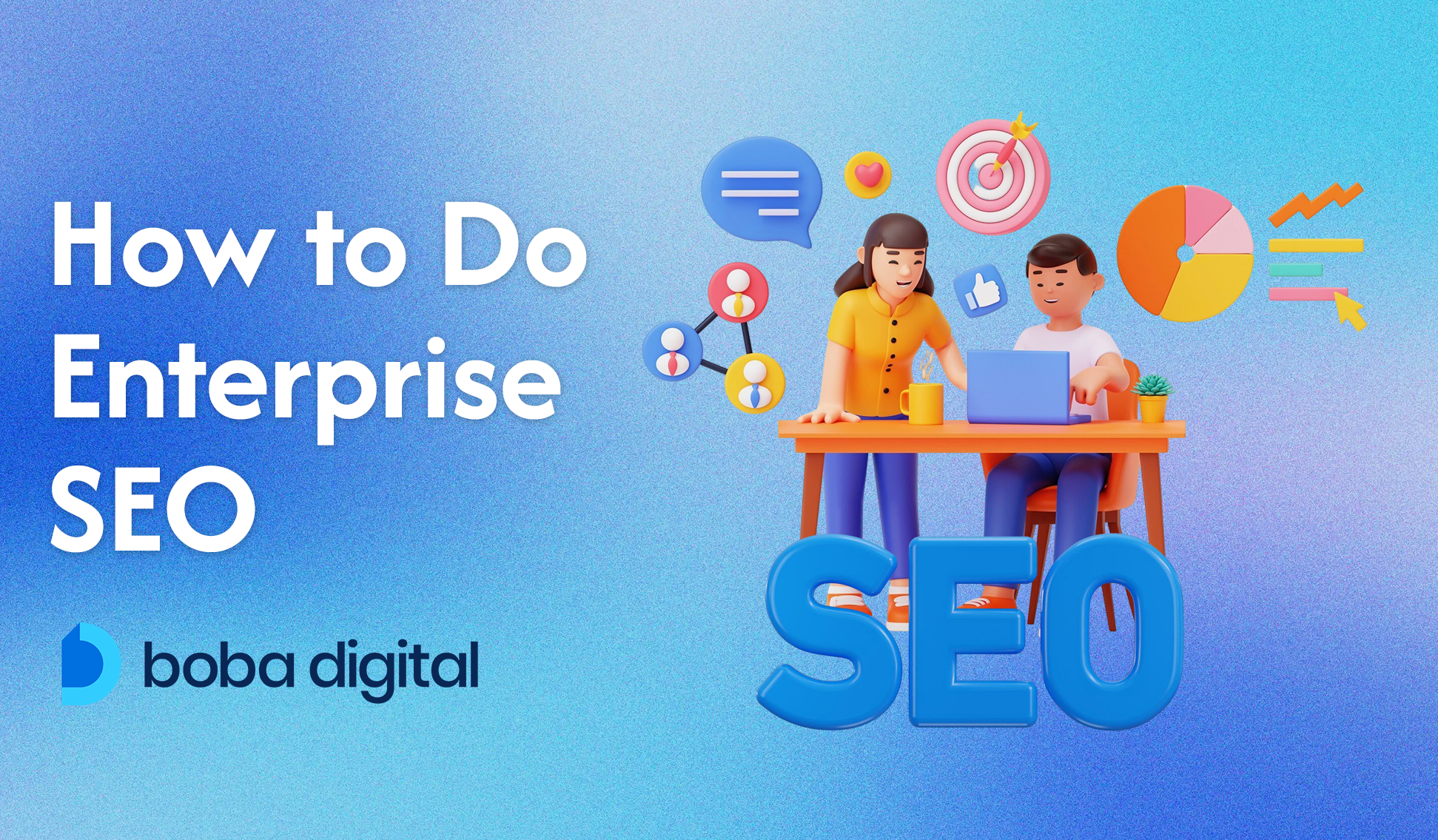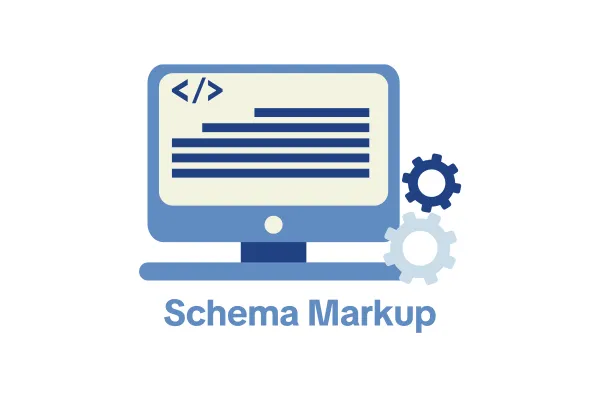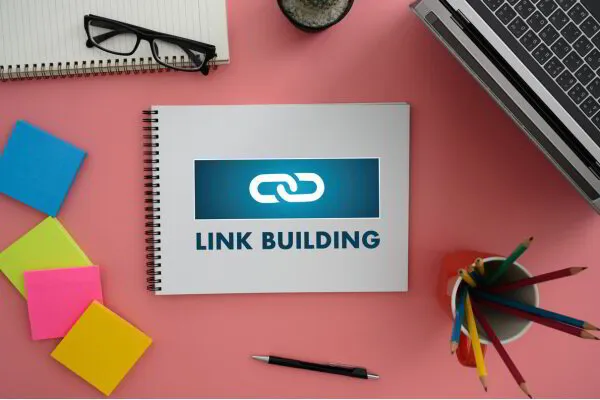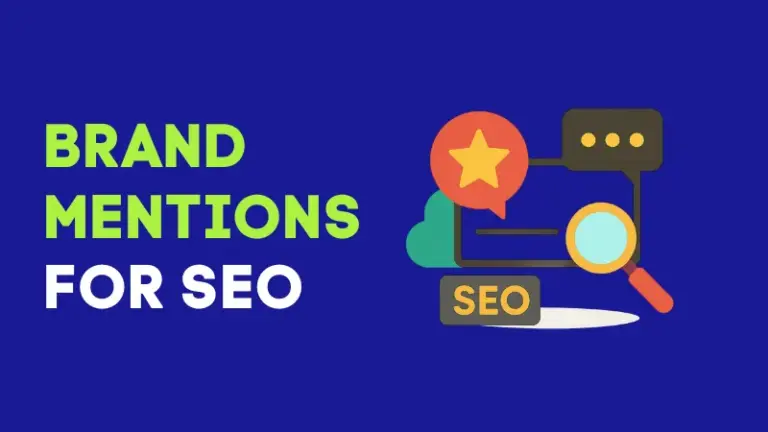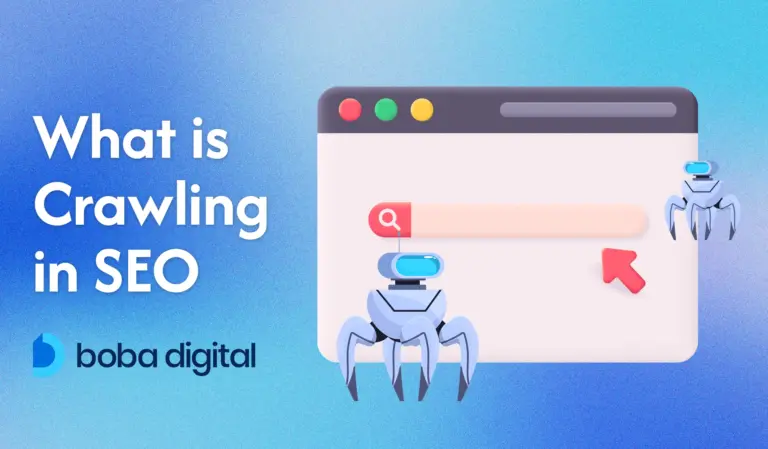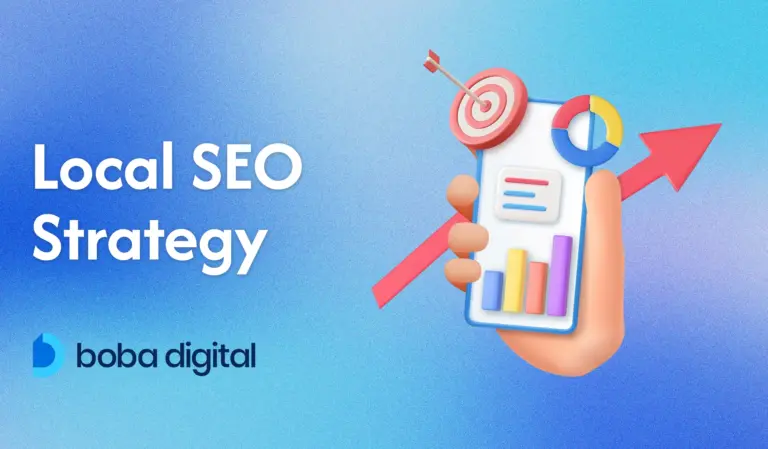How to Do Enterprise SEO: A Complete Guide for Big Brands
When your website has thousands of moving parts and more pages than your competitors can count, traditional SEO just won’t cut it. That’s where enterprise SEO steps in. It’s like SEO with a supersized to-do list, built for massive brands juggling millions of pages, multiple domains, and big marketing goals.
Enterprise search engine optimization isn’t just about ranking higher. It’s about managing complexity, staying visible on search engines, and outpacing the competition in a digital environment that changes by the minute.
From tackling technical SEO issues to building a robust content strategy, enterprise SEO requires a team, a plan, and tools built for scale.
Wondering how to do enterprise SEO the right way?
Stick around — we’re getting into what it takes to build a winning enterprise SEO strategy that actually moves the needle.
What is Enterprise SEO?
Enterprise SEO is the process of optimizing large, complex websites typically with thousands or even millions of web pages to improve visibility in search engine results. Unlike traditional SEO strategies that focus on smaller sites or local businesses, enterprise SEO is designed to handle scale, technical depth, and a higher level of organizational coordination.
Imagine trying to optimize an e-commerce site with 500,000 product pages or a financial services company managing multiple domains for different regions. These enterprise-level websites require more than basic keyword research or meta tag tweaks.
You’re not just fixing broken links or optimizing a handful of blogs. You’re managing a long list of SEO tasks, from site architecture to structured data implementation, and coordinating those tasks across enterprise SEO teams.
Enterprise SEO differs from basic approaches by relying heavily on technical SEO expertise, automation, and advanced tools. For example, log file analysis can uncover hidden crawling issues, while enterprise SEO platforms help prioritize and track improvements across departments.
Collaboration is key—your marketing efforts must align with development, product, and legal teams to implement changes at scale.
It also plays a critical role in protecting and expanding brand authority. When your competitors are fighting for the same search engine real estate, your enterprise SEO efforts ensure your site remains dominant on high-value search engine results pages. That means more organic traffic, better keyword rankings, and greater trust in your brand.
To do this successfully, you need more than a strategy. You need an enterprise SEO solution that can scale with your goals, help your SEO team automate repetitive work, and offer real-time insight into SEO performance through tools like Google Analytics and Google Search Console.
How Enterprise SEO Differs from Traditional SEO?
Strategy & Scale
Trying to run enterprise SEO like a local blog is like bringing a paper map to a GPS battle. The basic directions might be there, but you’re going to get lost fast.
The most obvious difference lies in scale. With traditional SEO, you’re optimizing a few key web pages, maybe launching a blog, or building some backlinks. It’s a focused effort, often handled by a small team. But enterprise SEO operates in a completely different universe.
You’re not just tweaking meta descriptions or adding internal links to a dozen pages—you’re managing enterprise sites with complex architecture, millions of indexed pages, and often multiple websites across global markets.
To succeed, your SEO strategy must scale across departments, systems, and markets.
It’s no longer just about keywords and content. Enterprise SEO teams must align with larger business objectives, from revenue growth to brand consistency. You’re also coordinating with legal, compliance, development, and marketing teams. That makes project management and communication as important as technical SEO.
The tools matter too. You’ll need enterprise SEO platforms that allow you to track thousands of keyword rankings, diagnose technical SEO issues at scale, and spot duplicate content or crawl errors before they become major problems.
Traditional SEO tools often fall short when it comes to crawling massive websites or managing enterprise SEO efforts across multiple domains.
While the core principles—like content optimization, link building, and on-page SEO—remain the same, the execution changes entirely. Enterprise SEO demands automation, robust reporting, and strategic oversight. Without those, your SEO tasks become impossible to manage, and your organic traffic plateaus.
At this level, every change must be efficient, measurable, and tied to broader marketing efforts. That’s how you shift from just implementing SEO practices to creating a true enterprise SEO solution that drives search engine visibility at scale.
Keyword Research
Finding the right keywords for enterprise SEO isn’t just about guessing what your audience might type into Google. It’s like trying to build a skyscraper with blueprints for a backyard shed; you need more detail, more depth, and a much broader scope.
For enterprise organizations, keyword research stretches far beyond short-tail terms or a single language. You’re often managing thousands of keywords across multiple domains, regions, and product lines. That means balancing national campaigns with local nuances, while also keeping a sharp eye on branded queries, competitor terms, and long-tail keywords that signal high intent.
For example, a tech company might target “laptop deals” nationally, but also needs localized terms like “business laptops in Chicago” or international variations like “notebooks for work” in other markets. Enterprise SEO teams must account for these shifts in language, culture, and user behavior, often across dozens of countries and customer segments.
This level of complexity demands more than a spreadsheet.
You’ll need access to enterprise SEO tools like Ahrefs, Semrush, or Conductor that let you analyze keyword rankings in bulk, uncover search intent patterns, and evaluate which terms drive actual results. These platforms also help identify gaps in your content strategy, allowing your SEO team to prioritize keywords that lead to conversions, not just clicks.
It’s not just about finding relevant keywords. It’s about organizing those keywords into clusters that align with your web pages, user journey, and business priorities.
A successful enterprise SEO strategy leans heavily on this data to decide where your SEO efforts should go and which content to translate or optimize for better performance.
Done right, keyword research becomes the engine behind your entire SEO platform—driving smarter content creation, better targeting, and more measurable growth across enterprise-level websites.
Content & Site Structure
Publishing a blog here and there might work for small businesses, but when you’re operating on an enterprise level, content needs a strategy—and a system behind it. You’re not just writing articles. You’re managing content ecosystems that span continents, product lines, and user personas.
Enterprise companies can’t afford to wing it. Every piece of content must serve a purpose, whether it’s to inform, convert, or support a larger marketing goal. That’s why a robust content strategy is non-negotiable. It must be organized, scalable, and driven by real-time data from tools like Google Analytics or your preferred SEO platform.
From refreshing outdated articles to rolling out new content across multiple domains, your SEO team needs to treat content creation like a well-oiled production line.
But even the best content can underperform without the right structure behind it. Enterprise websites often have millions of pages.
If the internal linking is messy or the taxonomy is too shallow or too deep, you’ll confuse not only your users but also search engine crawlers. A smart site structure improves search engine visibility and helps distribute authority across your web pages. It also boosts indexing speed and ensures your most valuable pages don’t get buried under less relevant content.
Sophisticated internal links, clear URL structures, and logical content grouping allow enterprise SEO efforts to scale without losing focus. A successful enterprise SEO strategy depends on making your content discoverable and actionable—by both your audience and the algorithms.
Ultimately, content and structure go hand in hand. One supports the other. And when both are aligned, your enterprise SEO management becomes less about chasing rankings and more about leading the conversation in your space.
More Pages
Imagine trying to keep a single plant healthy. Now imagine managing an entire forest. That’s what content maintenance looks like at the enterprise level.
When your website holds thousands—or even millions—of pages, every SEO task becomes exponentially more complex. What takes five minutes on a small site might require a dedicated team, a project management system, and advanced enterprise SEO tools to complete at scale.
Whether it’s rolling out updated meta titles, fixing broken internal links, or eliminating duplicate content, you need processes that are built for bulk.
That’s where automation steps in. Tools like enterprise SEO platforms enable bulk actions, from redirect mapping to content optimization, so your team isn’t stuck making one change at a time.
But automation isn’t a magic wand. Without quality control, it’s easy for errors to multiply. Maintaining consistent tone, formatting, technical accuracy, and search engine optimization across all those web pages is essential.
There’s also the challenge of deciding which content deserves your attention. Not every page drives traffic or conversions.
Using data from Google Search Console and competitive analysis tools, your SEO team can identify which pages are underperforming, which need consolidation, and which should be refreshed or retired.
Schema Markup
Search engines are smart—but they’re not mind readers. That’s where schema markup comes in. It’s like handing Google a neatly labeled folder instead of a messy pile of documents.
For enterprise companies, structured data isn’t just a nice-to-have. It’s essential for enhancing search engine results pages with rich snippets like product details, star ratings, and organization info.
These visual enhancements don’t just boost search engine visibility—they increase click-through rates, build trust, and help users find the information they need faster.
But here’s the catch: implementing schema on a 10-page site is nothing like doing it on an enterprise-level website.
Enterprise SEO teams deal with thousands of product pages, blog posts, location listings, and service categories. That means relying on scalable methods, like embedding schema markup directly into a custom CMS or using automated tag managers to apply structured data across content types without breaking site performance.
Consistency is critical. One mismatched field can cause your schema to be ignored entirely. That’s why enterprise SEO efforts involve testing, validation, and often specialized schema tools to ensure accuracy across massive catalogs of content.
More Extensive Tracking Needs
If traditional SEO is like tracking a local delivery van, enterprise SEO is more like managing a fleet of planes, trucks, and ships across continents. The scale of tracking is entirely different—and so are the stakes.
In traditional SEO, you might be monitoring a single website with a few dozen pages. Standard tools like Google Analytics and keyword trackers often do the job. But for enterprise-level SEO, the picture is far more complex.
You’re not just watching one domain. You’re monitoring multiple websites, subdomains, languages, and business units—each with its own set of SEO goals and KPIs.
Enterprise SEO demands a layered approach to data. You need to track keyword rankings across thousands of terms, monitor technical SEO issues in real time, and keep an eye on backlinks gained or lost across various regions and product lines.
A drop in traffic on one subfolder could mean lost revenue in an entire business segment.
To manage this, enterprise SEO teams often build custom dashboards that bring together data from tools like Google Search Console, enterprise SEO platforms, and analytics tools. Unlike traditional SEO setups, these dashboards offer filters by brand, country, product, or campaign, so teams can take action quickly.
Additionally, integration with business intelligence platforms like Tableau or Power BI is common. This allows SEO performance to be analyzed alongside broader marketing efforts, sales data, and customer behavior—something rarely seen in small-scale SEO environments.
While traditional SEO might get by with monthly updates, enterprise SEO relies on automated reporting and real-time monitoring to spot issues before they snowball. It’s not just about seeing what happened—it’s about knowing what’s happening right now and what to do next.
Off-Page SEO
When your brand already has a seat at the table, you don’t need to knock on doors—you need to start conversations. That’s the real difference between traditional link building and enterprise off-page SEO.
For smaller websites, off-page SEO often means cold outreach, guest post pitching, and trying to earn a handful of backlinks at a time. But enterprise organizations play a different game.
With established authority, recognizable names, and broader reach, they can unlock more impactful opportunities—think partnerships, high-profile media coverage, and influencer collaborations.
That’s not to say traditional link building tactics are off the table. They’re still part of the puzzle. But the focus shifts toward relationship-driven strategies. Enterprise SEO teams work closely with PR departments, digital marketers, and content creators to earn links through brand storytelling, thought leadership, and strategic placements.
Instead of chasing every backlink, the goal becomes earning high-quality mentions from trusted publications, industry blogs, or business review sites. These authoritative signals send a strong message to search engine algorithms—this brand is worth ranking.
Influencer marketing also plays a key role. When influencers mention a brand organically in podcasts, YouTube videos, or articles, it boosts visibility and can lead to naturally earned backlinks. The impact of that kind of exposure far outweighs what a dozen cold emails might achieve.
In short, enterprise off-page SEO is about using your brand’s momentum to fuel link building in smarter, more sustainable ways.
Marketing Teams
Optimizing a single blog post is easy when you’re the writer, editor, and strategist all in one. But when your SEO initiatives need to pass through legal, PR, IT, and three levels of management—things get a bit more… corporate.
That’s the reality of enterprise SEO. It’s not just about the strategy, it’s about the coordination. Unlike traditional SEO where one person or a small team handles everything, enterprise SEO efforts require cross-functional collaboration.
Your content team might craft a perfect piece, but it won’t go live until IT ensures technical compliance, PR approves the messaging, and legal signs off on every claim.
These aren’t roadblocks—they’re realities. And to make progress, enterprise SEO teams need clearly defined workflows and strong communication channels. That might mean using project management tools, weekly syncs with department leads, or creating internal documentation that outlines SEO best practices everyone can follow.
Without this alignment, your SEO tasks end up stalled in limbo. With it, you create a seamless path where ideas move from strategy to execution efficiently, and everyone stays on the same page.
Here’s a quick glance at the differences between Traditional SEO and Enterprise SEO:
| Aspect | Traditional SEO | Enterprise SEO |
| Scale | Focused on small to medium websites | Optimizes large-scale sites with thousands to millions of pages |
| Team Structure | Often managed by individuals or small teams | Involves cross-departmental teams including IT, PR, Legal, Content |
| Tools & Platforms | Basic SEO tools (e.g., Yoast, Ubersuggest) | Enterprise SEO platforms (e.g., Conductor, BrightEdge, Botify) |
| Keyword Research | Targets a limited number of keywords | Targets massive keyword sets across markets, devices, and languages |
| Content Strategy | Individual blogs and landing pages | Scalable content systems with localization and personalization |
| Site Structure | Simple navigation and linking | Complex taxonomy with strategic internal links |
| Link Building | Relies on guest posts and outreach | Leverages brand authority, PR, influencer collaborations |
| Tracking & Analytics | Basic tools like Google Analytics | Custom dashboards, BI tools, automated reporting |
| Schema Markup | Manual implementation on few pages | Automated, CMS-integrated schema deployment across entire site |
| Project Management | Minimal coordination needed | High coordination across departments with structured workflows |
| SEO Challenges | Limited technical and scaling concerns | Requires solving technical SEO issues at scale |
| Performance Monitoring | Monthly performance checks | Real-time tracking across multiple properties and segments |
| Search Engine Visibility | Regional/local search presence | National/international visibility and dominance in search results |
Enterprise SEO Strategies
SEO Content Creation for Enterprise Companies
Creating one great blog post is satisfying. Creating a thousand that perform, stay updated, and align with your business goals? That takes a system.
For enterprise companies, content creation isn’t just about volume—it’s about consistency, structure, and scalability.
You’re not brainstorming topics over coffee and hitting publish. You’re running an editorial engine that needs to align with brand messaging, SEO strategy, and ever-changing user search intent across product lines and regions.
To make that possible, scalable content production is built on solid foundations: editorial guidelines, predefined templates, and smart automation. These allow teams to maintain a unified voice while producing large volumes of content efficiently. Content hubs, for example, can organize related pieces around a core topic, improving internal links and enhancing SEO performance across enterprise websites.
But creation is only half the job. Keeping that content relevant over time is where enterprise SEO efforts often make or break. Regular audits are essential to refresh outdated articles, reoptimize for new keywords, or remove duplicate content that dilutes search engine visibility.
This is where AI-powered platforms like Clearscope or MarketMuse shine.
They help identify keyword clusters, optimize for semantic relevance, and automate the grunt work behind large-scale content optimization. Combined with human editorial oversight, they make it possible to stay competitive, even when managing content across hundreds of business units or multiple websites.
The most successful enterprise SEO strategies treat content like a living asset—one that evolves with your market, supports your users, and continuously reflects your brand at scale. When your content strategy is built to scale, so is your growth.
Link Building for Enterprise Companies
Getting people to talk about your brand online is one thing. Turning that attention into quality backlinks that drive SEO performance? That’s where the real work begins.
Enterprise companies often have a natural advantage in link building. Their brand recognition, existing media coverage, and long-standing partnerships can open doors that smaller sites struggle to reach. But with that visibility comes responsibility.
Maintaining a clean, healthy backlink profile requires constant monitoring and a proactive approach especially when negative SEO or spammy backlinks come into play.
Tools like Ahrefs or Semrush make it easier to spot toxic links and disavow them before they affect your search engine rankings. At this level, backlink audits shouldn’t be occasional—they should be routine.
Beyond defense, there’s opportunity. Reclaiming lost links from content that’s been moved or deleted can give your SEO team quick wins. Meanwhile, leveraging digital PR efforts, brand collaborations, and thought leadership can spark high-authority mentions from top-tier publications.
Enterprise SEO strategies often include partnerships with industry publications, sponsorships, and influencer outreach. These relationships build brand equity while earning backlinks that support your long-term growth. Using SEO tools to track competitor backlinks can also reveal link opportunities that align with your niche and business goals.
For enterprise organizations, link building is less about volume and more about relevance, quality, and sustainability. It’s a long game and one that pays off when done right.
Technical SEO for Enterprise Companies
When your website has more pages than some businesses have customers, even small technical issues can spiral into major SEO setbacks.
For enterprise companies, regular audits are essential to keep things running smoothly. Site speed, mobile usability, crawlability, and structured data aren’t just minor concerns—they’re foundational to your search engine performance.
And with a site that may span thousands of URLs, one overlooked error can quietly drag down the visibility of entire sections.
Start with speed. Enterprise sites often carry heavy content, complex scripts, and third-party plugins that slow load times. Even a one-second delay can impact user experience and search engine rankings. Tools like Lighthouse and Google PageSpeed Insights help pinpoint where things are getting stuck.
Then there’s internal linking. It’s not just about navigation—it’s about creating clear paths for search engine crawlers and elevating the pages that matter most. When your internal links are intentional, you strengthen site architecture and help distribute page authority more effectively.
Mobile optimization is another non-negotiable. With Google’s mobile-first indexing, enterprise websites must perform flawlessly on smartphones and tablets. A single design issue on mobile can create friction across the entire user journey.
You also need to stay ahead of common pitfalls like duplicate content, broken links, or mismanaged redirects.
On smaller websites, these can be fixed quickly. On enterprise websites, they multiply and linger unless you have the right systems in place. Automated tools like Screaming Frog, Deepcrawl, or Botify help scan large-scale sites and catch these issues before they impact SEO performance.
At scale, technical SEO isn’t about fixing problems as they appear—it’s about building processes that prevent them in the first place. And for enterprise-level SEO, those processes are what keep your site fast, functional, and future-proof.
Comprehensive Keyword Research
Trying to do enterprise SEO with a basic keyword list is like bringing a toy shovel to a construction site. It’s not going to cut it.
When your business spans multiple markets, product lines, and customer types, keyword research needs to be laser-focused and wide-reaching at the same time.
You’re not just looking for search terms—you’re uncovering patterns, behaviors, and intent across regions and verticals. That takes serious tools. Think Semrush, Ahrefs, or Conductor—platforms built to handle keyword data at scale.
But discovery is only the beginning. Once you’ve gathered thousands of keywords, the real challenge is sorting them. You’ll need to segment by business unit, funnel stage, location, and even device type. Without structure, your content team ends up drowning in ideas with no clear direction.
This is where ongoing research matters. New competitors enter the space. Customer interests shift. Search engines evolve. If you’re not revisiting your keyword priorities regularly, you’re standing still while everyone else moves forward.
Smart enterprise SEO teams treat keyword research like a living system—one that feeds content strategy, drives search visibility, and adapts as the market does. Done right, it’s not just data. It’s momentum.
Automation and Programmatic SEO
Trying to manually optimize an enterprise website is like trying to mop the ocean—by the time you finish one section, the rest has already changed.
That’s why automation isn’t just helpful for enterprise SEO—it’s necessary. With thousands of product pages, blog posts, and regional variants, large organizations can’t afford to handle every update by hand. Programmatic SEO allows teams to scale their efforts without sacrificing consistency or control.
Automation helps streamline the repetitive tasks that eat up time but are critical to performance. Meta tag generation, internal link building, and schema markup are perfect examples. Instead of applying these one by one, enterprise SEO teams can deploy tools that handle bulk edits or rule-based updates across entire content types or site sections.
It goes deeper. For multilingual or multiregional websites, automation ensures consistent structure while adapting content to each market.
Tools can dynamically generate XML sitemaps for different regions, automate hreflang tags, and deliver localized metadata using AI-driven systems—freeing up your team to focus on high-level strategy and quality control.
Even reporting doesn’t escape automation. With platforms like Looker Studio or built-in dashboards from SEO tools, teams can monitor keyword rankings, organic traffic, and search performance in real-time without the manual legwork.
Of course, automation doesn’t replace human input. Manual checks are still critical for quality, especially when algorithm updates roll out. But what it does offer is speed, scale, and agility—exactly what enterprise SEO teams need to stay ahead in a fast-moving search environment.
Monitoring, Reporting, and Analytics
Running enterprise SEO without proper tracking is like piloting a jumbo jet with no dashboard—you’re moving fast, but you have no idea where you’re headed or what’s going wrong.
When you’re managing SEO for massive websites with thousands of pages and multiple business units, a basic monthly report won’t cut it. You need real-time dashboards, customized analytics, and automated reporting that can keep pace with the scale and complexity of your SEO efforts.
Whether it’s keyword performance, traffic trends, or indexation issues, visibility into the data must be instant and easy to interpret.
Enterprise SEO platforms often integrate directly with tools like Google Analytics, Search Console, and third-party trackers to consolidate information in one place.
But the real advantage comes from pairing that SEO data with broader business intelligence platforms like Tableau, Power BI, or Looker. When marketing metrics sit alongside sales data, conversion funnels, and customer behavior, you get insights that go beyond rankings—you get clarity on impact.
This integration allows enterprise SEO teams to align with larger business goals, prioritize initiatives that move revenue, and respond faster when performance dips. It also helps different departments speak the same language, making collaboration smoother and more results-driven.
Conclusion
Enterprise SEO isn’t a scaled-up version of traditional SEO—it’s a whole different beast. You’re not just optimizing pages; you’re orchestrating systems. From coordinating across departments to managing millions of URLs, everything is bigger, faster, and more complex.
Success at this level depends on more than basic best practices. It requires specialized strategies, automation, real-time analytics, and collaboration that goes beyond marketing.
Whether it’s aligning content with business objectives, leveraging programmatic SEO, or maintaining a clean backlink profile, enterprise companies need tools and teams that can keep up with the pace—and outpace the competition.
If you’re ready to stop patching things together and start building an SEO machine that actually drives results, Boba Digital is here to help. Our team knows how to untangle the chaos, build scalable systems, and turn your website into a traffic magnet.
Let’s turn your enterprise site into a serious growth engine.
Reach out today at bobadigital.com/contact-us and let’s build something that ranks, scales, and wins.
FAQs
How can automation and AI help with enterprise SEO?
Automation and AI are essential for enterprise SEO because they simplify and speed up tasks that would be overwhelming to handle manually. From generating meta tags and monitoring keyword rankings to handling structured data and internal links, automation allows enterprise SEO teams to focus on strategy instead of repetitive work. AI tools also assist with content optimization by analyzing semantic relevance and user intent. In large-scale environments, automation supports consistent enterprise SEO management while improving search engine visibility across millions of pages.
How do you measure the success of an enterprise SEO strategy?
Measuring the success of an enterprise SEO strategy goes beyond traffic spikes. Key indicators include improvements in keyword rankings, organic traffic growth, search engine results page performance, and conversions. Enterprise SEO tools, Google Analytics, and platforms like Google Search Console help track these metrics at scale.
What is the difference between enterprise SEO and local SEO?
The main difference lies in scale and complexity. Local SEO focuses on optimizing for location-based searches and business listings, often using traditional SEO strategies tailored to smaller markets. Enterprise SEO, on the other hand, is designed for enterprise-level websites that span multiple domains, regions, or business units. It requires advanced technical SEO, keyword research across markets, and enterprise SEO platforms to manage performance.
What is the 80/20 rule for SEO?
In SEO, the 80/20 rule suggests that roughly 80% of your results come from 20% of your efforts. For enterprise organizations, this could mean that a small portion of your web pages drive the majority of organic traffic. A winning enterprise SEO strategy involves identifying which pages and keywords contribute most to performance and doubling down on them.
Is paying someone to do SEO worth it?
If you’re serious about improving your search engine rankings, website traffic, and online visibility, hiring SEO experts is often a smart investment. This is especially true for enterprise sites where the complexity of managing technical SEO issues, content strategy, and link building at scale can be overwhelming. A trusted enterprise SEO agency can handle everything from keyword research to automation, ensuring your SEO efforts are aligned with business goals. With the right SEO platform and support, the return on investment is more than worth it.

